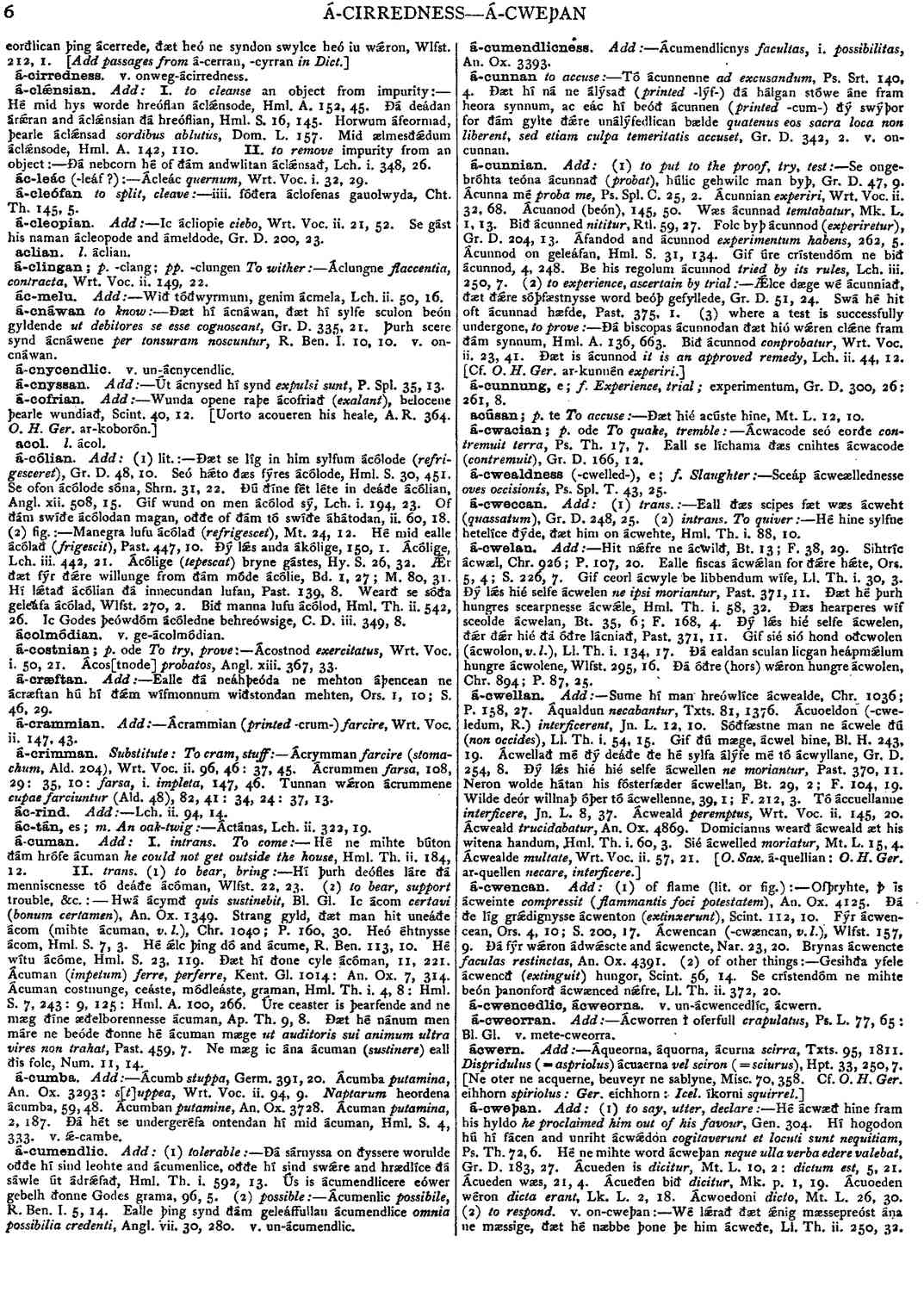á-cuman
- verb
-
Hé ne mihte búton ðám hrófe ácuman
he could not get outside the house,
- Hml. Th. ii. 184, 12.
-
Hí þurh deófles láre ðá menniscnesse tó deáðe ácóman,
- Wlfst. 22, 23.
-
Hwá ácymð
quis sustinebit, Bl. Gl. Ic ácom certavi (bonum certamen ),
- An. Ox. 1349.
-
Strang gyld, ðæt man hit uneáðe ácom (mihte ácuman,
v. l.
),- Chr. 1040; P. 160, 30.
-
Heó éhtnysse ácom,
- Hml. S. 7, 3.
-
Hé ǽlc þing dó and ácume,
- R. Ben. 113, 10.
-
Hé wítu ácóme,
- Hml. S. 23, 119.
-
Ðæt hí ðone cyle ácóman,
- 11, 221.
-
Ácuman
(impetum) ferre, perferre,
- Kent. Gl. 1014: An. Ox. 7, 314.
-
Ácuman costnunge, ceáste, módleáste, graman,
- Hml. Th. i. 4, 8: Hml. S. 7, 243: 9, 125: Hml. A. 100, 266.
-
Úre ceaster is þearfende and ne mæg ðíne æðelborennesse ácuman,
- Ap. Th. 9, 8.
-
Ðæt hé nánum men máre ne beóde ðonne hé ácuman mæge
ut auditoris sui animum ultra vires non trahat,
- Past. 459, 7.
-
Ne mæg ic ána ácuman (
sustinere
) eall ðis folc,- Num. 11, 14.
Bosworth, Joseph. “á-cuman.” In An Anglo-Saxon Dictionary Online, edited by Thomas Northcote Toller, Christ Sean, and Ondřej Tichy. Prague: Faculty of Arts, Charles University, 2014. https://bosworthtoller.com/37459.
Checked: 0